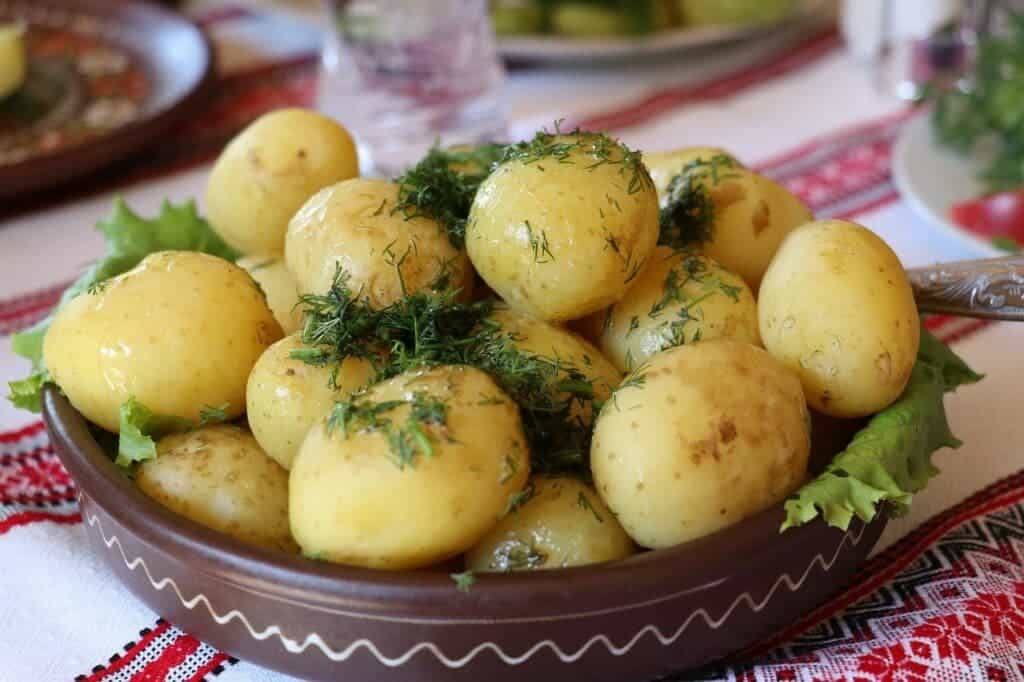Researchers at the Max Planck Institute for Plant Breeding Research have set the groundwork for supercharging the potato, by mapping out the tuber’s complete genome.

Fried, mashed, or thrown in a stew, the humble potato has a special place in our hearts and our plates that nothing else seems to be able to fill. Researchers seem to love this tasty tuber as well, and have put significant effort into decoding its genetic secrets. This impressive work will allow us to create better varieties of potato much faster than traditional breeding methods allow for, with implications for the quality of our meals, the enjoyment we derive from it, and global food security.
Super Tuber
“The potato is becoming more and more integral to diets worldwide including even Asian countries like China where rice is the traditional staple food. Building on this work, we can now implement genome-assisted breeding of new potato varieties that will be more productive and also resistant to climate change — this could have a huge impact on delivering food security in the decades to come.”
The potato has not changed very much in the last 100 years or so. The overwhelming majority of varieties that are available in shops today are the same ones that were put to market over the last century and before. While these traditional cultivars are very popular, they do underline that there is a lack of variety of potatoes being grown, cooked, and enjoyed around the world. Thus, it stands to reason that improvements can be made to the baseline potato in order to make it more palatable, more resilient, or more abundant.
That’s what the team at the Max Planck Institute for Plant Breeding Research hopes to achieve with the full sequencing of the plant’s genome. The work, led by geneticist Korbinian Schneeberger, represents the first full assembly of the potato genome in history, allowing for researchers to work with a much better view of the plant’s genetic intricacies, and thus much more accuracy when trying to breed new varieties of the plant.
Low genetic diversity within a species — and the potato is a good example of one such species — means that it can have difficulties thriving in certain contexts, and leaves it vulnerable to disease. The near-extinction of the Gros Michel banana due to the Panama disease is a great example of such a genetic vulnerability at work. In the case of the potato, the Irish famine of the 1840s stands testament to how completely potato crops can be wiped out by pathogens. During this tragic event, Europeans were growing a single variety of potatoes, which was vulnerable to blight; as such, potato crops failed across the continent.
The Green Revolution of the 1950s and 60s saw a great diversification of crop varieties in staples like rice or wheat, but not potatoes. Efforts to breed new varieties with higher yields or more disease resistance have, so far, remained largely unsuccessful.
Potatoes, the team explains, inherit two copies of each chromosome from every parent — unlike humans, who inherit one copy of every chromosome from their parents. This makes them a species with four copies of each chromosome, a ‘tetraploid’, making them exceedingly difficult and slow to be coaxed into generating new varieties with desirable combinations of traits.
The same tetraploid structure also makes it technically difficult to reconstruct the potato’s genome.
To work around this issue, the team sequenced the DNA of potatoes working not with mature plants, but with large numbers of individual pollen cells. These contain only two copies of each parent chromosome, which made it easier for the team to use established genetic methods to reconstruct the plant’s genome.
The results should give scientists and plant breeders a powerful new tool with which to identify desirable gene variants in the potato and work to establish new varieties that contain them. Essentially, it gives them a baseline against which they can reliably compare individual plants and establish exactly where their desirable properties originate — and then work to reproduce them.
The paper “Chromosome-scale and haplotype-resolved genome assembly of a tetraploid potato cultivar” has been published in the journal Nature Genetics.









